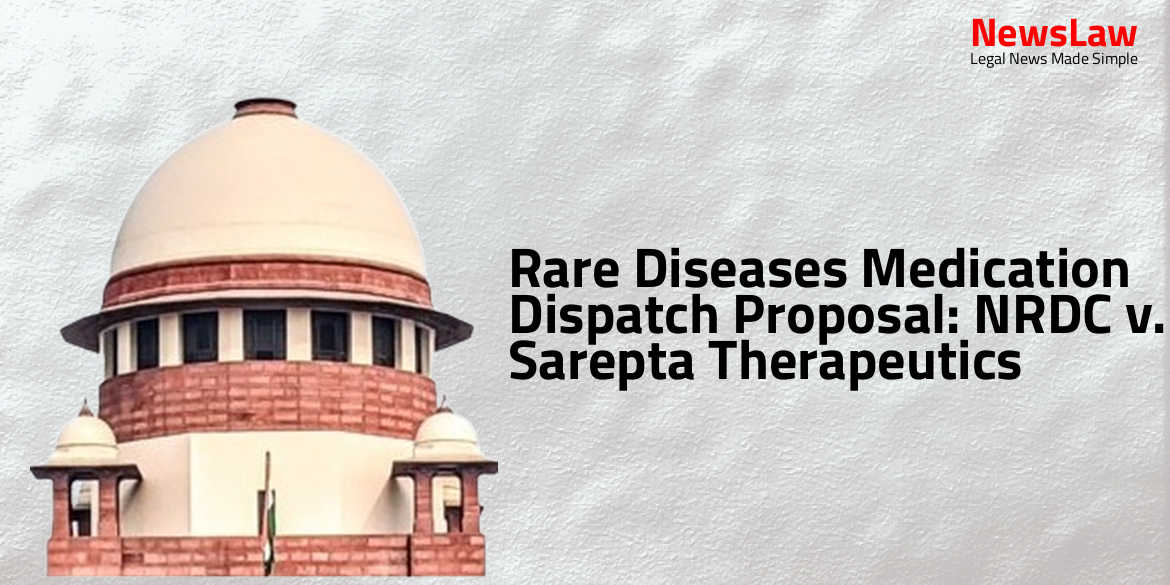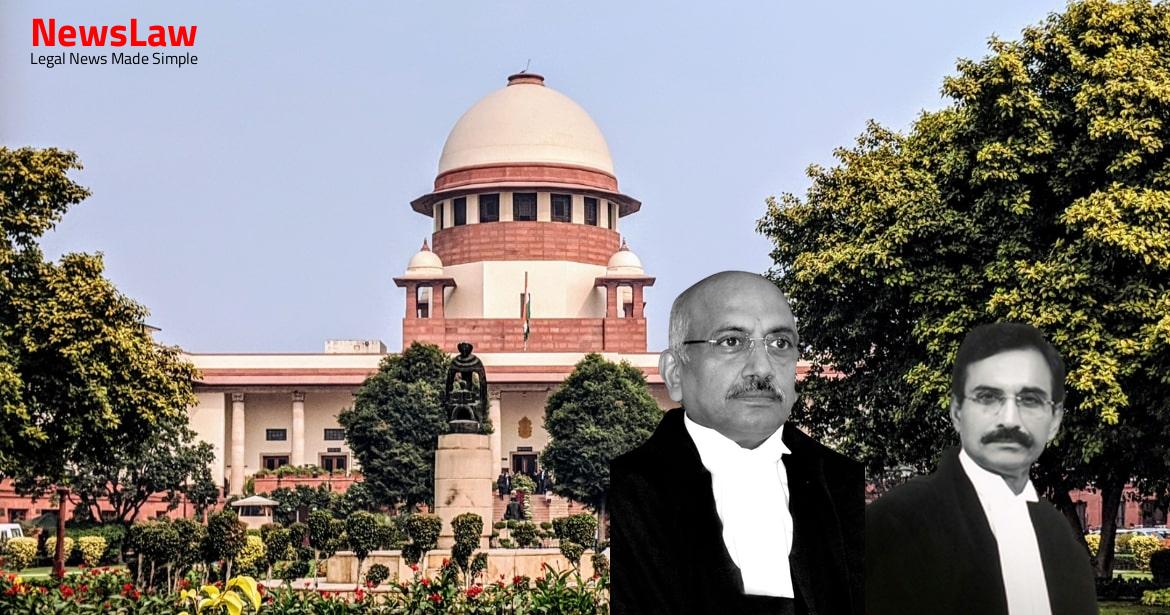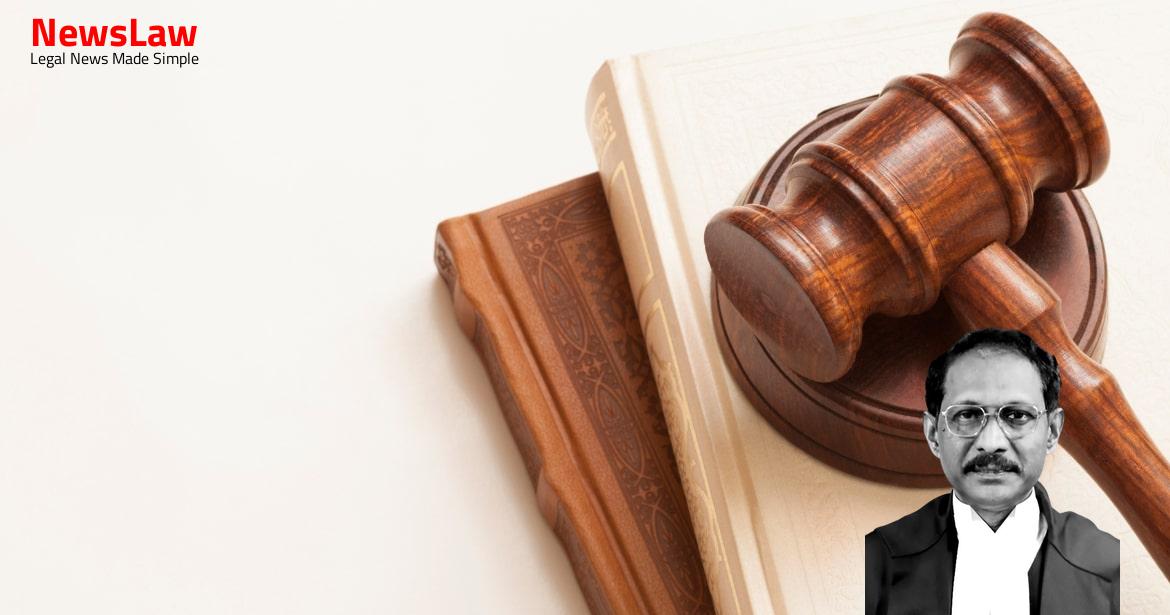In a recent legal case, the court delves into the intricate analysis of the interplay between the Limitation Act and the Insolvency and Bankruptcy Code (IBC) in the context of a time-barred application. The court’s interpretation of the law is crucial in determining whether a claim filed beyond the prescribed limitation period can be condoned without a formal application for delay condonation. Let’s explore the nuanced legal reasoning behind the court’s decision.
Facts
- Financial Creditor rejected the representation of the Corporate Debtor and requested to clear the outstanding amount within 15 days
- Financial Creditor issued a notice under Section 13(4)(a) of SARFAESI Act for possession of secured immovable assets
- Corporate Debtor filed a writ petition challenging notices under Section 13(2) and 13(4) of SARFAESI Act
- Authorized Officer of Financial Creditor took possession of secured assets under Section 13(4) of SARFAESI Act
- Financial Creditor filed application for CIRP under Section 7 of IBC
- Relevant dates show Cash Credit Account declared NPA from 31 March 2013
- High Court issued interim order restraining Financial Creditor from SARFAESI Act steps
- Financial Creditor initiated application under Section 7 of IBC with notices served on Corporate Debtor
- Corporate Debtor’s opposition to IBC application on limitation grounds and appointment of Special Officer, without findings by the Adjudicating Authority
- High Court’s interim view on applicability of SARFAESI Act on Cooperative Bank
- The Corporate Debtor filed an appeal before the NCLAT under Section 61 of the IBC, challenging the order passed by the Kolkata Bench of NCLT on 25 April, 2019, contending that the application should not have been entertained due to being barred by limitation.
- It was argued for the first time in the NCLAT appeal that the account of the Corporate Debtor was declared NPA on 31 March, 2013, and the application under Section 7 of IBC was filed on 27 August, 2018, after almost five years and five months from the accrual of the cause of action, rendering it barred by limitation.
- The SARFAESI Act proceedings were stayed by the Calcutta High Court on 24 July 2017 due to jurisdictional issues.
- The NCLAT analyzed the limitation issue and ruled that the Respondent had initiated proceedings against the Corporate Debtor under the SARFAESI Act within the period of limitation, entitling them to exclusion of time under Section 14(2) of the Limitation Act.
- The NCLAT dismissed the appeal noting that the limitation ground was raised by the Corporate Debtor for the first time in the appeal, and found that the application by the Financial Creditor under Section 7 of the IBC was within limitation after excluding the period of about three years and six months during which the Financial Creditor had been proceeding under the SARFAESI Act.
Also Read: Challenging Conviction: Legal Analysis Spotlight
Issue
- Issue (i) focuses on whether delay beyond three years in filing an application under Section 7 of IBC can be condoned without an application for condonation of delay under Section 5 of the Limitation Act, 1963.
- Issue (ii) concerns the applicability of Section 14 of the Limitation Act, 1963 to applications under Section 7 of the IBC.
Also Read: Analysis of Contempt Charges for Breach of Undertaking
Arguments
- Mr. Dave argued that the application under Section 7 of the IBC, filed on 10 July, 2018, was time-barred as it was filed after five years and three months from the date of the account of the Corporate Debtor being declared as an NPA.
- The Explanation in Section 14(2) of the Limitation Act was referred to by Mr. Dave to support his argument that the Financial Creditor could not benefit from the provision as proceedings under SARFAESI Act were still pending.
- Mr. Dave highlighted that if the Corporate Debtors were unsuccessful in the High Court, the Financial Creditor, in possession of the secured property, could deal with it to recover the defaulted amount within the bounds of the law.
- Allowing the Financial Creditor to proceed with the time-barred claim before the NCLT would force the Corporate Debtor to fight the same default amount in two separate forums.
- Reference was made to a previous judgment by a larger Bench of NCLAT where it was held that the applicant under Section 7 of IBC is not entitled to the benefit of Section 14 of the Limitation Act in relation to SARFAESI Act proceedings.
- Mr. Dave emphasized that the account of the Corporate Debtor was declared an NPA on 31 March, 2013, and argued that the application under Section 7 of IBC was rightly barred by limitation and should have been dismissed on that ground.
- It was pointed out that the Financial Creditor had not filed any application under Section 5 of the Limitation Act, and that Section 14 of the Limitation Act could only apply if earlier proceedings by the applicant were dismissed due to lack of jurisdiction or similar reasons.
Also Read: Land Dispute: Court’s Analysis on Condonation of Delay
Analysis
- Section 14 of the Limitation Act applies to an application under Section 7 of the IBC.
- The interpretation of Section 5 and Section 18 of the Limitation Act is crucial in IBC cases.
- The concept of exclusion of time spent in pursuing proceedings in a wrong forum is applicable under Section 14.
- The acknowledgment in writing of a present subsisting liability can trigger a fresh period of limitation.
- The IBC does not reopen debts that are time-barred, and the Adjudicating Authority’s role is limited to verifying defaults.
- Explanation in Section 5 does not mandate a formal application for condonation of delay.
- Section 238A of the IBC makes the provisions of the Limitation Act applicable to NCLT and the NCLAT.
- The necessity of balancing legitimate rights with technical interpretations in IBC proceedings.
- The ultimate objective of an application under Section 7 or 9 of the IBC is debt realization through the Insolvency Resolution Process.
- The importance of harmonizing the provisions of the IBC and the Limitation Act to ensure a fair and efficient resolution process.
- Section 238A of the IBC states that the provisions of the Limitation Act, 1963 shall apply to proceedings before the NCLT/NCLAT as far as possible.
- Section 238 gives overriding effect to the IBC, regardless of any inconsistency with other laws or instruments.
- There is no specific limitation period under the Limitation Act, 1963 for IBC applications before the NCLT.
- Section 14(2) of the Limitation Act allows for the exclusion of time when a petitioner has been diligently pursuing a civil proceeding for the same relief against the same party in a court that is unable to entertain it.
- The conditions for exclusion include pursuing the earlier proceeding diligently and in good faith in a forum unable to entertain it.
- The explanation in Section 5 of the Limitation Act clarifies that being misled by any order, practice, or judgment of the High Court may constitute “sufficient cause” for delay.
- Section 14 of the Limitation Act applies in cases of mistaken remedy or selection of the wrong forum.
- The Limitation Act applies to suits, other proceedings, and purposes connected therewith.
- The Insolvency and Bankruptcy Code (IBC) triggers when the default amount is one lakh rupees or more.
- The IBC differentiates between initiation of corporate insolvency resolution process by financial creditors under Section 7 and operational creditors under Section 9.
- The Court should adopt an object-oriented approach while interpreting statutes.
- The expression ‘sufficient cause’ in relation to delay should be liberally construed to advance substantial justice.
- Section 14 of the Limitation Act should be interpreted liberally to serve the cause of justice.
- The period of limitation for applications under the IBC is three years from the date of default.
- Section 5 of the Limitation Act allows admission of appeals or applications after the prescribed limitation period if sufficient cause is shown.
- Delay can be condoned even without a formal application if there are sufficient materials on record disclosing sufficient cause.
- Omission to refer to the correct section of a statute does not invalidate an order.
- The NCLAT was correct in refusing to stay the proceedings before the NCLT.
Decision
- Judgment and order of NCLT not warrant interference.
- Appeal dismissed.
Case Title: SESH NATH SINGH Vs. BAIDYABATI SHEORAPHULI CO OPERATIVE BANK LIMITED (2021 INSC 199)
Case Number: C.A. No.-009198 / 2019



